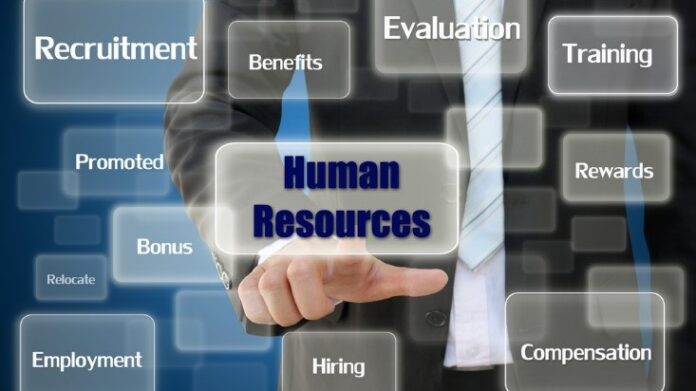Human Resources (HR) is an essential department of any organisation. HR personnel are responsible for carrying out HR duties on time. These duties include recruiting and managing employees, ensuring legal compliance, developing training programs, and implementing policies to promote a positive work environment.
However, day-to-day tasks can overwhelm HR departments, making it challenging to focus on strategic initiatives. Human resource management software or HRMS can streamline HR tasks and automate administrative duties. This blog will discuss how HRMS can streamline HR tasks and highlight some of the day-to-day HR duties that can be streamlined using HRMS.
What is HRMS?
HRMS is a software solution that helps HR departments manage various HR functions. HRMS systems can be cloud-based or on-premise, and they can automate HR tasks such as recruitment, payroll, benefits administration, and time and attendance tracking. HRMS can also give HR managers valuable insights into employee performance and help them make data-driven decisions.
HR tasks that can be streamlined using HRMS
Recruitment
Recruiting is one of the most crucial HR tasks but can also be one of the most time-consuming. The best HRMS software in India can streamline recruitment processes by automating job postings, resume screening, and interview scheduling. HRMS can also track applicant data and provide HR managers with valuable insights into the recruiting process.
Onboarding
Onboarding is the process of integrating new employees into the organisation. HRMS can streamline onboarding processes by automating paperwork, tracking progress, and providing a central repository for onboarding documents. HRMS can also ensure new employees receive all the necessary information and training to succeed in their new roles.
HR administration
HR administration can be a complicated process, but HRMS can simplify it by automating benefits enrollment, tracking employee eligibility, and providing a central repository for benefits documents. HRMS can also generate reports to help HR managers understand employee benefits usage and plan design.
Time and Attendance Tracking
HRMS can streamline time and attendance tracking by automating timekeeping processes, calculating overtime, and providing real-time data on employee attendance. HRMS can also generate reports to help HR managers monitor employee attendance and identify areas for improvement.
Performance Management
Performance management involves setting goals, monitoring progress, and providing employee feedback. HRMS can streamline performance management by providing a centralised platform for performance data, automating performance evaluations, and generating reports to help HR managers evaluate employee performance.
Benefits of using HRMS to streamline HR tasks
Improved Efficiency
One of the primary benefits of using HRMS to streamline HR tasks is improved efficiency. HRMS can automate many administrative tasks, freeing HR personnel to focus on more strategic initiatives. This can save HR departments time and reduce the risk of errors.
Improved Accuracy
HRMS can also improve the accuracy of HR tasks. Manual data entry is prone to errors, but HRMS can automate data entry, reducing the risk of mistakes. HRMS can also generate reports that provide HR managers with accurate, real-time data on HR functions.
Improved Compliance
HRMS can help organisations comply with various regulations and laws. For example, HRMS can ensure that employee data is secure and help organisations comply with data privacy regulations. HRMS can also help organisations comply with labour laws by tracking employee hours and generating reports on compliance.
Improved Employee Experience
HRMS can improve the employee experience by providing a centralised platform for HR tasks. Employees can access HRMS to view and update personal information, enrol in benefits, and request time off. HRMS can also provide employees with real-time data on their performance, allowing them to track their progress and set goals.
Conclusion
HRMS can streamline HR tasks and improve HR departments’ efficiency, accuracy, compliance, and employee experience. By automating daily administrative tasks and providing valuable insights into HR functions, HRMS can free up HR personnel to focus on more strategic initiatives.
HRMS can help organisations comply with various regulations and laws, such as data privacy regulations and labour laws.
In conclusion, HR departments can benefit significantly from using HRMS to streamline day-to-day HR tasks. By automating administrative tasks, improving accuracy, ensuring compliance, and enhancing the employee experience, HRMS can help HR departments work more efficiently and effectively.
With innovative HRMS software, HR departments can focus on strategic initiatives that drive the success of the organisation while also ensuring that HR functions are running smoothly and efficiently.























